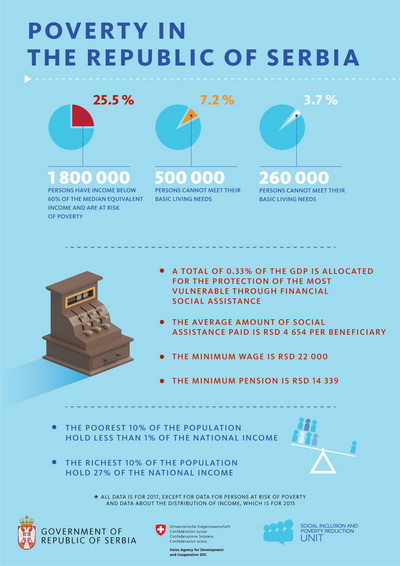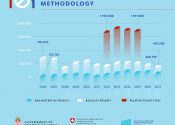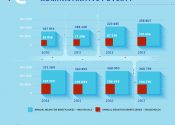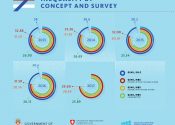Social inclusion is defined as a process which ensures that those at risk of poverty and social exclusion gain the opportunities and resources necessary to participate fully in economic, social and cultural life and to enjoy a standard of living and well-being that is considered normal in the society in which they live. Social inclusion ensures greater citizen participation in decision-making which affects their lives and access to their fundamental rights.
Among EU Member States, social exclusion is defined as a process whereby certain individuals are pushed to the edge of society and prevented from participating in social relations and developments to the full extent of their capacity, by virtue of their poverty, or lack of basic competencies and lifelong learning opportunities, or as a result of discrimination. Individuals and/or population groups are thus distanced from job, income and education and training opportunities and hindered from joining and participating in social and community networks and activities. Excluded individuals and/or groups have little and inadequate access to institutions, authorities and decision-making processes.
Poverty is defined as a multidimensional phenomenon which, in addition to an income insufficient to meet the basic needs of life, also entails the inability to find employment, inadequate housing conditions and inadequate access to social protection, health care, education and utility services. Other key aspects of poverty include inability to exercise the right to a healthy environment and natural assets, in particular clean water and air.
- Poverty by Methodology – Infographic
- Trends of Administrative Poverty – Infographic
- Inequality by Concept and Survey – Infographic
For more information on poverty and concepts of measuring poverty and social exclusion visit following pages:
- Theoretical Concepts of Measuring Poverty and Social Exclusion
- Measuring Social Exclusion and Poverty in Serbia
- Who Are the Poor in Serbia?
- Absolute Poverty
- Relative Poverty
- Administrative Poverty – Poverty According to Legal Criteria
- Inequality
- Material Deprivation
- People at Risk of Poverty or Social Exclusion (AROPE)
- Overall Economic and Social Context
Publications on Poverty Statistics:
- Third National Report on Social Inclusion and Poverty Reduction in the Republic of Serbia for the Period 2014–2017
- Analysis of the Decile Distribution of the Income and Consumption in Serbia for the Period 2006-2018
- Monitoring Social Inclusion in Republic of Serbia – Third Revised Edition
- Poverty in the Republic of Serbia for the Period 2006–2016 – Revised and New Data
- Assessment of Absolute Poverty in Serbia in 2019
- Income of the Poorest Deciles of Serbia’s Population: Focus on Agricultural Activities
- Measuring Poverty – Theoretical Concepts, Status and Recommendations on Serbia
- First National Report on Social Inclusion and Poverty Reduction in the Republic of Serbia
- Second National Report on Social Inclusion and Poverty Reduction in the Republic of Serbia
- Blog on poverty by Biljana Mladenović
Useful links:
- Data on social benefits are available on the website of the Ministry of Labour, Employment, Veteran and Social Affairs
- Municipal social profiles
- Database of income and living conditions in the EU and Serbia
- Database of social protection expenditures in the EU and Serbia
- Database of household budget surveys in the EU
 Government of the Republic of Serbia
Government of the Republic of Serbia















 pdf [271 KB]
pdf [271 KB]